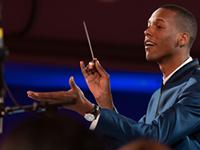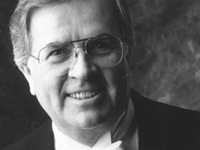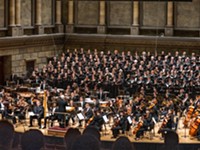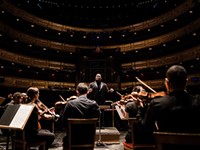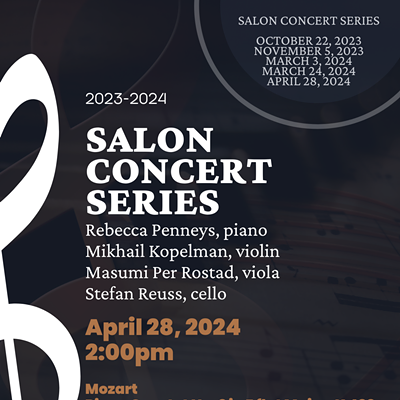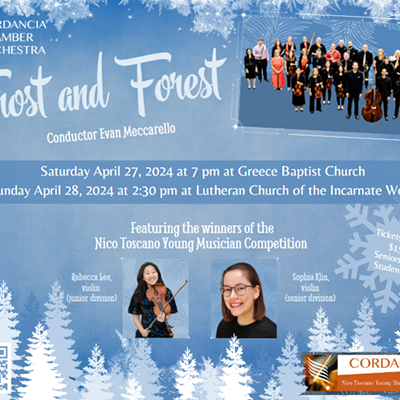[
{
"name": "500x250 Ad",
"insertPoint": "5",
"component": "15667920",
"parentWrapperClass": "",
"requiredCountToDisplay": "1"
}
]
"Incomparable" is not a word to be used carelessly, but it could easily be used to describe the craft of 29-year-old pianist Yuja Wang. Undeniably kinetic, Wang's performances are unparalleled for their flair, exuberance, and substance. The piano phenom has already accomplished a lot in her young career, having performed rarified gigs at Carnegie Hall and the BBC Proms. Wang has also performed under conductors Gustavo Dudamel, the late Claudio Abbado, Zubin Mehta, and Valery Gergiev, and collaborated with the world's top orchestras.
And still, Wang's upcoming concerts with the Rochester Philharmonic Orchestra will mark the first time the musician has performed Béla Bartók's Piano Concerto No. 1 and Piano Concerto No. 3. Wang's performances signal the beginning of a project in which she will perform all three Bartók concerti with various orchestras during the 2016-17 concert season.
City spoke to Wang over the phone to discuss the two Bartók works, learning through performance, and the importance of taking risks. An edited transcript of that conversation follows.
City: In a PBS interview, while comparing live performance to recording, you said, "Perfection is not the goal." On one level, that seems counterintuitive for a classical musician. What then, is the goal?
Yuja Wang: The "taking the risk" part, because that matters more. I'm not saying I don't want to achieve perfection, but the "taking risks" part and being creative matters more for me, either in performance, or in practicing, or in life.
If I tried to achieve perfection, I would just go crazy. It's not like sports, you know; they get higher points if they're more perfect. It's not that. It's always a constant process in the making of music. It's not a finished product always. And we learn from that process.
The time with Rochester is going to be the very first time I'm learning the Bartók. It's a super-complicated piece for me, and for the conductor, for the orchestra — it's just really lots of counterpoint between them. We're just going to have some fun with that, with the rhythms and counterpoint and all that.
You're already established in your career. Is it a scary proposition at all to venture out and do pieces you've never performed before, like these Bartók piano concerti?
I would never think anything is scary. Like you said, I'm branching out. No — you know what my recital program is this year: it is the "Hammerklavier." I would say that's scary; way scarier than Bartók. I mean this is just fun. In general, I just think playing concertos is much more fun for me. If it is scary, we're in it together.
How would you compare the character of Bartók No. 1 to Bartók No. 3?
Well, No. 1 is his very early work. [The conductor, Willem] Mengelberg was going to premiere with him, but they didn't have enough rehearsal time. They couldn't put it together. So they delayed the [American] premiere [until] two years later. It was like 1928 or something. Whereas the third concerto was pretty much the final work of Bartók. It's 1945, and he wrote it to his last wife; it's like a gift to his last wife. It's very lyrical, and much more simplified, probably because he moved to America and he was getting older. The first one is very percussive, and also it can be very Hungarian.
Was it your decision to play both concertos, one on each night? Or was that something that Ward Stare decided?
That was my request, just because I'm taking all three concerti as a project ... I play lots of Prokofiev; I play lots of Rachmaninoff; and I feel good about them just because I play them a lot. So I want to learn them at the same time, so they kind of go into my system at the same time.
It sounds like the way you learn a piece is through the performance of it.
Oh yeah, completely; totally. I guess it's equivalent to, like, you can read a book, or you can recite it and play it out in a theater, so then you really know the book, rather than just reading it.
Do you mean the difference between reading it to yourself and reciting it aloud?
And with an audience, yeah. You just know the piece a little more, and you think about it more because you're like, "What do I want to do with this interpretation?"
You've talked about relearning a piece, so the implication is that your interpretation of a given piece might change down the line. Do you get the sense, further into your career, that your performance of these Bartók concerti will be different?
That's very self-evident; yes, of course. I'm going to grow. Everything I play, not just the Bartók, everything I played before sounds different now. And later, it will sound different. It's a living thing.
Speaking of...
Latest in Classical
More by Daniel J. Kushner
-
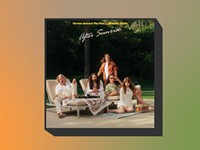
Album Review | 'After Sunrise'
Apr 9, 2024 -
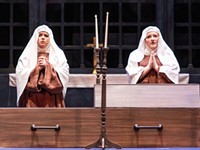
Opera Review | 'Dialogues des Carmélites'
Apr 5, 2024 -

Music Review | 'The Healing'
Apr 4, 2024 - More »


